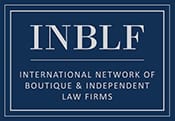When Regulators Turn to You For Help
Eric F. Greenberg Attorney-at-Law
March, 2018
Hey packaging industry, the US Food and Drug Administration is looking directly at you for help.
FDA requested in late January that packagers employ new packaging restrictions on an over-the-counter diarrhea medicine because too many people were taking too much of it in an attempt to get high. The drug, whose generic name is loperamide, is safe when taken as directed, but taking much, much more than the correct dosage can lead to serious heart problems and deaths.
But why would someone do that? Says FDA, “individuals are taking significantly high doses of loperamide in situations of both misuse and abuse, often attempting to achieve euphoria or self-treat opioid withdrawal.”
The most important lesson of this announcement is not that some people will do anything, although that appears to be the case. The lesson is that packaging structures and package labeling are uniquely capable of making unsafe products safe.
It’s a fascinating, almost metaphysical transformation. Poisonous chemical that can burn your skin or kill you if swallowed? Sharp-edged consumer product that can cut? Food products to which some people have a dangerous allergic reaction? Power tools, electronics, household and industrial chemicals? These products present objective dangers to some people in some circumstances and yet the common remedy is not to outlaw them. Rather, it’s to create the conditions to make their sale safe, and first among those are packaging and labeling adjustments. (Others include restrictions on distribution through licensed professionals, or restrictions on sale to or possession by underage persons.)
In fact, many times when people injured by products sue the manufacturer for injuries, the crux of the claim is an allegation that the product was ‘defective’ in that it lacked an adequate label warning about the hazard that hurt the plaintiff. The claim is that it’s not the product’s structure or chemical makeup that made it defective or unreasonably dangerous, it’s its labeling.
This understanding of packaging and labeling’s role may seem obvious to packaging professionals, but it’s useful to remember and to remind non-packaging folks now and then, particularly when the value and importance of packaging is being overlooked or underappreciated.
Dr. Scott Gottlieb, the new FDA commissioner, doesn’t appear to have that problem. He recognizes the central role that packaging and labeling can play in assuring product safety.
“Today we sent letters to the OTC manufacturers requesting that they implement changes consisting of packaging limitations and unit-of-dose packaging,” he says. “We’re requesting that packages contain a limited amount of loperamide appropriate for use for short-term diarrhea according to the product label. One example is a single retail package containing eight 2-milligram capsules in blister packaging. We asked the manufacturers to take the necessary steps to implement these changes in a timely fashion to address these public health concerns.”
This effort is one of many steps FDA has taken to address the opioid crisis. Gottlieb says, “Since establishing the Opioid Policy Steering Committee in May, senior FDA leaders across the agency have been hard at work to ensure that we’re leaving no stone unturned in our efforts to combat this immense public health emergency.”
Indeed, while some observers have complained that the Trump administration’s efforts regarding opioids have been more bark than bite, it doesn’t appear that FDA specifically deserves that criticism.
For example, earlier in January 2018, FDA began requiring labeling changes for prescription cough and cold medicines containing codeine or hydrocodone that limited use of these products to adults 18 years and older. It also required added information about the risks of misuse, abuse, addiction, overdose, death, and slowed or difficult breathing to the ‘Boxed Warning’ on the drugs’ labels.
Also, FDA and the Federal Trade Commission have issued warnings to companies for illegally marketing unapproved products that claim to help with opioid addiction and withdrawal.
The agency’s recent loperamide actions are the latest in a series. Gottlieb says: “The FDA added a warning to the product label in the spring of 2017 to warn of ingesting high doses of loperamide, including from abuse and misuse. Evidence suggests that package limitations and use of unit-dose packaging may reduce medication overdose and death.”
Notably, FDA is not making new regulations. The new administration is ideologically opposed to regulations, regardless of their purpose or subject matter. So perhaps it’s not surprising that FDA is instead merely requesting industry to make voluntary changes. Will they? We’ll see, but FDA guidance to industry often achieves comparable results to those achieved by regulatory requirements.
In closing, for the record, I disagree with Jerry Seinfeld, who has been known to say, if I may paraphrase, that the motorcycle helmet is good evidence of human beings’ irrationality: He thinks there’s absurdity, and humor, in the fact that when people discover a dangerous activity, like riding a motorcycle, their solution is not to avoid the activity, but instead to invent the helmet. It’s funny when he says it, but conceptually I have to disagree, especially as to important and necessary products. Think of carefully crafted packaging and labeling as helmets, protecting consumers against dangers that would otherwise be present, and their wisdom becomes clear. PW
Eric Greenberg can be reached at [email protected], or visit his firm’s Web site at www.ericfgreenbergpc.com.
This article is informational only and is not intended as, and should not be considered to be, legal advice.
Be sure to check for any updated information about the topics discussed in this article.


